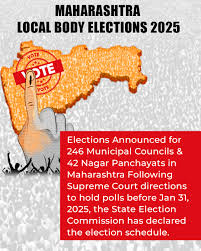
Congress leader Rahul Gandhi has been disentitled as a Lok Sabha MP following his conviction on Thursday for his alleged disparaging remark made against the surname of India Prime Minister Narendra Modi during a rally ahead of Lok Sabha polls in 2019.
This disqualification of his position will be effective from March 23, 2023. Gandhi was convicted by a Gujarat court on Thursday for his ‘all thieves have Modi as the common surname’ remark which made in Karnataka’s Kolar district ahead of the 2019 national election. He was found guilty by a court in Surat, Gujarat.
A court in Surat had sentenced him for 2 years but he was soon released on bail for his appeal in the higher court. His sentence has been suspended for 30 days for the same. Ex-Gujarat minister Purnesh Modi filed the criminal case claiming Gandhi had defamed the Modi community by his remark. It has been seen that several political leaders have rallied Gandhi and have accused BJP government of targeting political opponent.
Gandhi was convicted under Section 500 which is for dealing with defamation of the Indian Penal Code, under which the individual who defames another individual or a community can be punished with an imprisonment for a term extending to two years or with fine. Gandhi was present in court when the verdict was announced.
According to the law, Gandhi will also not be able to contest election for the next 8 years unless there is a stay on his convection by the court. After the elimination of Rahul Gandhi from Lok Sabha, his sister, Congress leader responsed by taking it to Twitter where she wrote, “Nirav Modi scam – 14,000 Cr Lalit Modi scam- 425 Cr Mehul Chauksi scam – 13,500 Cr. the ones who looted our country, why is BJP trying to save them? Why are they running away from investigation? Whoever tries to questions these things is shut up by these trails. Does BJP support corruption?” which has garnered mixed responses from the netizens.
This case will further be looked into by higher court authorities as people wait for the final Statment of the court in this case a Sessions Court.
Gandhi cannot directly approach the high court or Supreme Court because his conviction is in a criminal case but a third party can if this decision had hurt or offended a larger public.



